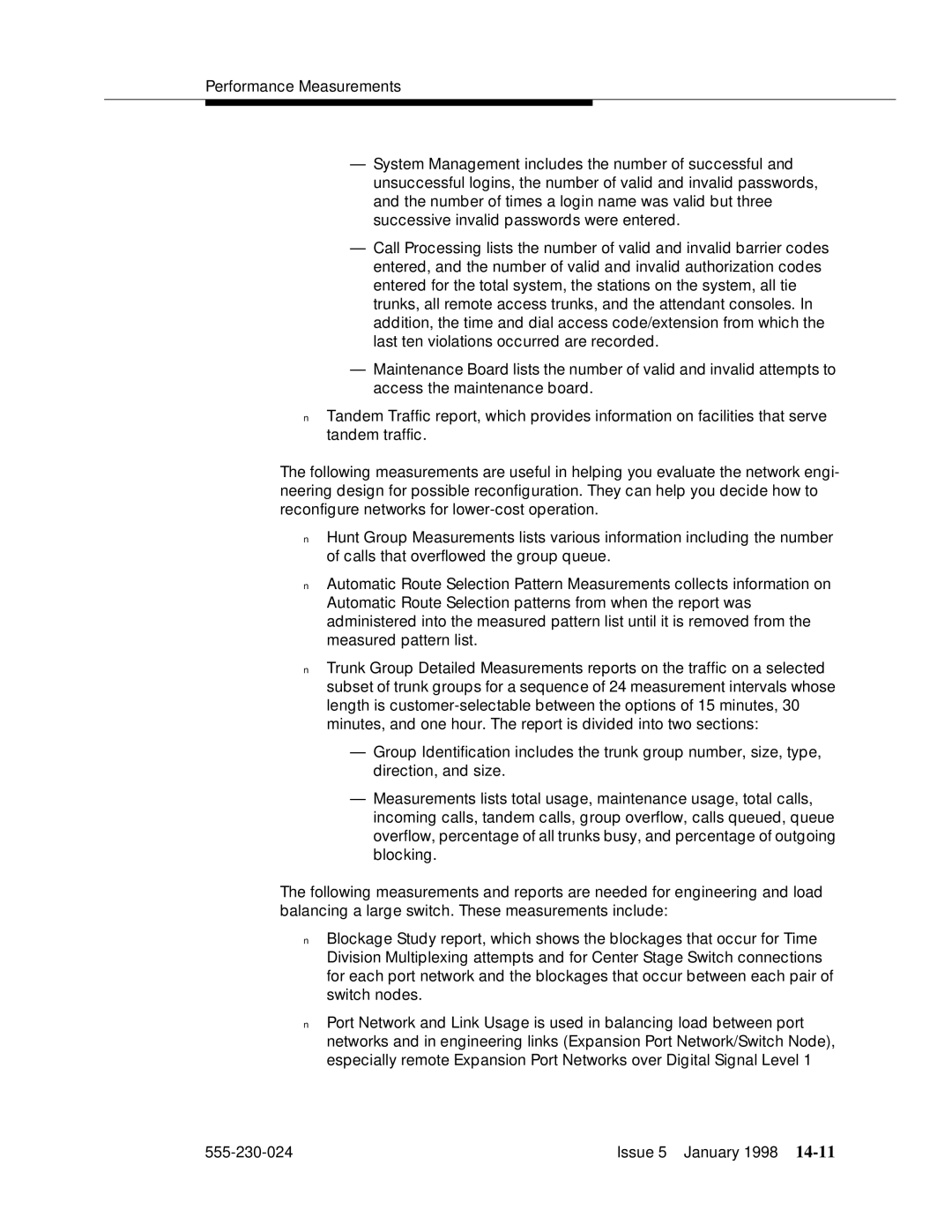Performance Measurements
—System Management includes the number of successful and unsuccessful logins, the number of valid and invalid passwords, and the number of times a login name was valid but three successive invalid passwords were entered.
—Call Processing lists the number of valid and invalid barrier codes entered, and the number of valid and invalid authorization codes entered for the total system, the stations on the system, all tie trunks, all remote access trunks, and the attendant consoles. In addition, the time and dial access code/extension from which the last ten violations occurred are recorded.
—Maintenance Board lists the number of valid and invalid attempts to access the maintenance board.
■Tandem Traffic report, which provides information on facilities that serve tandem traffic.
The following measurements are useful in helping you evaluate the network engi- neering design for possible reconfiguration. They can help you decide how to reconfigure networks for
■Hunt Group Measurements lists various information including the number of calls that overflowed the group queue.
■Automatic Route Selection Pattern Measurements collects information on Automatic Route Selection patterns from when the report was administered into the measured pattern list until it is removed from the measured pattern list.
■Trunk Group Detailed Measurements reports on the traffic on a selected subset of trunk groups for a sequence of 24 measurement intervals whose length is
—Group Identification includes the trunk group number, size, type, direction, and size.
—Measurements lists total usage, maintenance usage, total calls, incoming calls, tandem calls, group overflow, calls queued, queue overflow, percentage of all trunks busy, and percentage of outgoing blocking.
The following measurements and reports are needed for engineering and load balancing a large switch. These measurements include:
■Blockage Study report, which shows the blockages that occur for Time Division Multiplexing attempts and for Center Stage Switch connections for each port network and the blockages that occur between each pair of switch nodes.
■Port Network and Link Usage is used in balancing load between port networks and in engineering links (Expansion Port Network/Switch Node), especially remote Expansion Port Networks over Digital Signal Level 1
Issue 5 January 1998 |
